
Can I Work Remotely For An Overseas Employer Whilst I Remain In Hong Kong With My Same Sex Partner On A Prolonged Visitor Visa?
Posted by The Visa Geeza / in Family Visas, Your Question Answered / 7 responses
What issues arise in respect of those foreign nationals in Hong Kong who accompany their unmarried life partners (gay or heterosexual) here on prolonged visitor visas and who are planning to carry on their professions remotely for an overseas employer whilst permitted by the Hong Kong Immigration Department to be present in Hong Kong as a visitor for family reunion purposes only?
QUESTION
Hi there!
Amazing site – thank you so much for all the info.
I’m a Canadian citizen following my partner to Hong Kong (where he will be working as a lawyer).
I will actually be keeping my job in Vancouver but working remotely from Hong Kong.
Is it worth mentioning this in my application or is it irrelevant?
Also, I’m still a little confused as to whether I should apply for the extended visitor visa once I get to Hong Kong or before – could you clarify whether its better to do so after arrival and use form ID91?
Does my partner already need to have been issued his work visa or can we apply at the same time?
Thank you for this wealth of knowledge!
ANSWER
Thanks so much for asking this question. You’ve raised quite a lot of issues, many of which I’ve dealt with previously on the Hong Kong Visa Geeza blog. So specifically, the detail advice in relation to most of them, other than the question about the remote working, you can find in the links to the content attached below.
So I’ll just touch upon it generally here, but then refer you to the detailed information in those specific resources that form part of this blog post. The key issue here for me is the question about keeping your job in Vancouver and then remotely working from Hong Kong.
Because in the Hong Kong immigration law, you have a requirement to secure the consent of the Immigration Department to take employment, whether paid or unpaied, effectively for any employer both in Hong Kong and overseas. So if you’re planning to remain in Hong Kong on the strength of being reunited with your partner so that you can continue your family lives together, the prolonged visit visa that you’re going to get will be given to you by the Immigration Department on the strength of that rationale.
However, if you’re planning to continue your profession, albeit remotely while you’re in Hong Kong, that needs to be disclosed to the Immigration Department and you need to be ready to in a sense be dragged over the calls by the Department to kind of understand effectively what’s going on, so that you can have the visitor visa permissions that you’re looking for for family reunion purposes and you can also be in complete compliance with those permissions because you’ve empowered the Immigration Department in advance to understand what it is that you’re planning to do professionally whilst you’re accompanying your partner here; that is the Immigration Department do want to be appraised of that. They want to understand effectively, the totality of your circumstances. So, my best advice to you is without a doubt disclose that to Immigration Department. Make it a part of your application submission.
It’s definitely going to complicate your application. You need to be under no illusions about that, but best practise is to do things lawfully and that’s my advice. So yes, definitely it is worth mentioning it in your application.
As regards the process of how to apply, my best advice is to apply on an entry visa basis using the ID481A and ID481B forms. Don’t use the ID 91 form; and, in actual fact if your partner has not yet secured his employment visa and his application hasn’t been put in, ideally, you should run those applications together at the same time. However, if, your partner’s employer is handling, as I expect, that, they will be doing his own employment visa application, it could be problematic to have your application in at the same time as his, so you can’t practically run them together.
So in that regard, my best advice then is to come to Hong Kong as Canadian citizens, you’ll get a three month period of stay as a visitor and then submit your application on the ID481A and ID481B series once your partner’s employment has been approved. And promote your application on the basis that you’re in Hong Kong while all of that is taking its course. So don’t use the form ID 91 because that’ll put you down into a section of immigration tower where the immigration officers are under a lot of pressure and a lot of stress, and, it’s likely that you probably won’t meet a particularly popular reception when you pitch up with all your documents seeking to apply for a visa on the strength of family reunion. Okay, I hope all of this helps.
VisaGeeza.Ai – Making Hong Kong Immigration A Lot Easier

VisaGeeza.Ai – 13 Years In The Making
Check Out VisaGeeza.Ai
All Our Know-How : All Our Experience : Fully Interactive
100% FREE!
More Stuff You May Find Useful Or Interesting
The Reality For Same Sex Partner Visa Applicants In Hong Kong
10 Must Have Resources For A Same Sex Partner Visa Application
Hong Kong Employment And Same Sex Partner Visas – A Joint Application Strategy
Understanding The Procedure For A Same Sex Partner Visa Application
| PODCAST ANSWER |
Podcast: Play in new window






























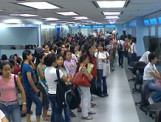
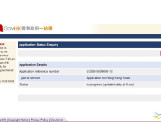







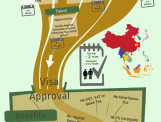


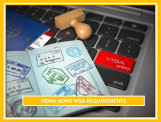
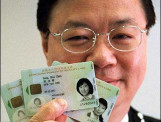














































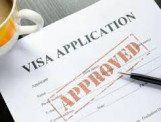








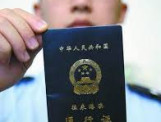



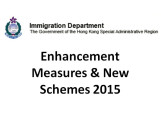





















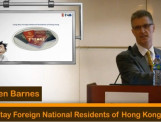
























TT
If you cant be bothered getthing a visa all you need to do is take a 40minute bus or train ride to Shenzhen every 3 months to renew your 3 month visitors visa. I stayed in Hk for 7 years that way on a Australian passport.. Just dont tell you work in HK if the customs offices ask. just say you live there because your parner is there.
The Visa Geeza
This approach is fraught with danger and not recommended. You might have been able to get away with it, but I see several instances each month where it has gone terribly wrong. The Shenzhen Shuttle is not a sustainable way to maintain a ‘residence’ in Hong Kong. Apart from the risks associated with running the gauntlet of ImmD at the border once every 90 days, time spent in Hong Kong as Visitor does not count as ordinary residence for the purposes of an eventual Right of Abode application. It’s just wasted time.